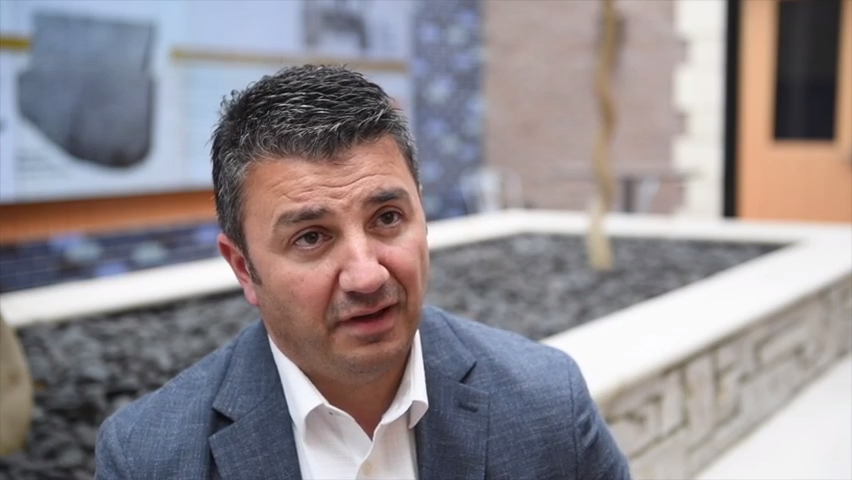Metro Detroit immigration advocates: Hopes for Biden tempered by experience
 Gregg Krupa , Sarah Rahal | The Detroit News
Gregg Krupa , Sarah Rahal | The Detroit News
The election of Joe Biden as the next president has given hope to some Metro Detroit immigration advocates that things will improve under the next administration.
Sergio Martinez is less confident.
“It’s a lesser of two evils kind of thing,” said the 32-year-old Detroiter, who came from Mexico unlawfully to the United States with his parents at age 5. “He’s definitely not a progressive on immigration issues.”
Martinez has been allowed to remain in the United States because of Deferred Action for Childhood Arrivals, the Obama-era immigration policy best known as DACA. Repeated attempts by the Trump administration to dismantle the policy have largely been unsuccessful, and most experts, advocates and lawyers expect the assault on DACA to end. They are less certain there will be real and lasting change in U.S. immigration policy.

“We’ve had Democrats in the White House before. I’m not hopeful, I’m not thankful that he will be in office,” said Martinez, an immigration-rights activist. “I don’t see Biden prioritizing it. And, even if he does, the framework he is using is a framework that has failed the Democratic party for 15 years now.”
DACA, which was announced by President Barack Obama in 2012, allows some who enter this country unlawfully as children to receive renewable two-year periods of deferred deportation and become eligible for work permits. Unlike the DREAM Act proposed by Obama, DACA does not provide a path to citizenship.
Those whose families are ensnared in the anti-immigration policies and practices of the Trump administration said any hope they have for real change is tempered by the enormity and complexity of immigration issues, and the slender gains that Democrats have garnered in the past.
“We hope to see something larger developed in the next four years,” said Luz Viviana Meza, an advocate for immigrants’ rights for Wayne County.
“’Dreamers’ really forced Obama’s hand for DACA. We have to keep the pressure because nothing’s going to get done otherwise.”
Some things can be done, and comparatively fast, experts say.
“President Trump issued a lot of executive orders. And because he issues them as executive orders, a new president can also undo those executive actions,” said Stephen Yale-Loehr, an immigration attorney who teaches immigration and asylum law at Cornell Law School.
“So, for example, the Muslim travel bans could be undone. President Biden could issue a new executive order reaffirming the Deferred Action for Childhood Arrivals Program for young ‘Dreamers,’ and perhaps make them feel more secure by allowing them to renew their status for two years, rather than the one year for which the Trump Administration currently has issued,” Yale-Loehr said.
“President Biden could also undo the travel bans for temporary workers that are in place.”
Those measures would likely face challenges in the courts, just as broader, more vigorous attempts at reform will be met with resistance in Congress. The ability of Republicans to maintain control of the Senate if they win two runoffs in Georgia would likely stymie ambitious immigration measures.
And the pandemic, the economy, climate change and frayed foreign alliances all require Biden’s immediate attention, observers with concerns about immigration issues say.
But Biden’s campaign, nonetheless, fostered considerable hope — not unlike those of Obama’s first run for the presidency.
“He promised that his first days in office he is going to do away with the Muslim ban,” said Nabih Ayad, a civil rights and immigration lawyer.
The Detroit-based attorney sued the Trump administration to halt a fuller implementation of the policy on behalf of the Arab American Civil Rights League, the American Civil Liberties Union, the Arab-American Chamber of Commerce, the Arab-American Chaldean Council and others.
Ayad said in addition to using executive power to reverse Trump’s executive orders, Biden can affect immigrants’ lives with new directions and orders to the Department of Homeland Security and the U.S. attorney general.
“They could reverse this idea that when you apply for asylum, you have to remain outside of the United States, or being so aggressive that they have asylum-seekers waiting in jail,” he said.
“And, before Trump, the policy of federal law enforcement was to focus on criminal aliens, to deport those individuals. The Trump administration basically has taken aggressive steps on everyone.”
‘Biggest fear’
Under the Trump administration, Nabintou Doumbia’s father, Banny Doumbia, was deported from Detroit to the Ivory Coast for check-kiting — nearly 20 years after he had been sentenced for the federal crime.
While in the United States, his daughter said, Banny Doumbia ran businesses, owned property, paid taxes and contributed to his neighborhood. The Trump administration created an absolute binary relationship in which immigrants were deported for minor crimes, Doumbia said.
“My biggest fear is that Biden and the Democrats provide just a little relief, and then the next administration will come in and just build on the anti-immigrant regime that is in place,” she said. “I just think that is going to require a very intensive level of aggressiveness to overturn these things.”
Dawud Walid believes immigrants from Africa and the Middle East have faced higher scrutiny and enforcement during the Trump years.
Walid, the executive director of the Council on Islamic Relations Michigan, said Michigan has the second-highest number of deportations in the country. A significant Muslim population and groups of immigrants from Yemen and Syria mean Trump’s policies have been particularly detrimental to the state, he said.
But, Walid points out, the increase in deportations, which has separated many families in Metro Detroit, did not begin with Trump’s term in office.
“The issue of increased deportations actually started in the Obama era,” Walid said. “So, that’s not anything that’s unique to Mr. Trump.”
Under Trump, rhetoric and enforcement became aggressive, and the Chaldean, Muslim and African communities in southeastern Michigan, close to an international border, have paid a high cost, he said.
“He called African countries ‘s—hole countries,’” said Walid, recalling Trump’s infamous assertion at a White House meeting early in his term. “We are hopeful Mr. Biden, not just rhetorically, will take the necessary steps to undo Mr. Trump’s anti-Black xenophobia.”
Religious protections
While there is a yearning for substantive change in area immigrant communities — including the ability to work and go to school — there is concern that the recent emphasis on protecting Christian populations in the Middle East, including in claims for asylum, will now be lost.

“When you look at back in the Obama-Biden administration and refugee flow, they did not prioritize ethnic and religious minorities, even those that were victims of genocide,” said Martin Manna, president at Chaldean American Chamber of Commerce and Chaldean Community Foundation.
“One clear example of that: Of the 100,000-plus refugees that came from Syria under the Obama-Biden administration, less than 1% were Christian, even though 10% of the Syrian population was Christian.
“And, frankly, the U.S. has played a role in this. They’re the ones that invaded Iraq, and the reason why we’ve gone from 1.5 million Iraqi Christians to fewer than 200,000 today.”
Despite disagreements, discouragement and a frank acknowledgment of the Democrats’ failure to deliver on past promises, some advocates are pushing for new initiatives in immigration.
After turning back some of Trump’s executive orders, the new president should take a bolder step, believes Steve Tobocman, executive director of Global Detroit, an economic development organization that builds on the strengths of immigrants and international workers: Create a White House Office for New Americans.
“We’ve never had a federal policy on integration of immigrants, unlike many western democracies. It makes infinite sense. It’s a humane policy from the immigrants’ standpoint, and it addresses some of the challenges and concerns that long-time Americans face when we experience rapid growth in immigration.”
There would be great benefits, particularly economic benefits, from having an immigration strategy, Tobocman believes.
“We should be empowering our local communities to deal with the impacts of immigration, focusing on the economic integration of newcomers.”
https://eu.detroitnews.com/story/news/politics/2020/11/27/metro-detroit-immigration-advocates-hopes-biden-tempered-experience/6391988002/
